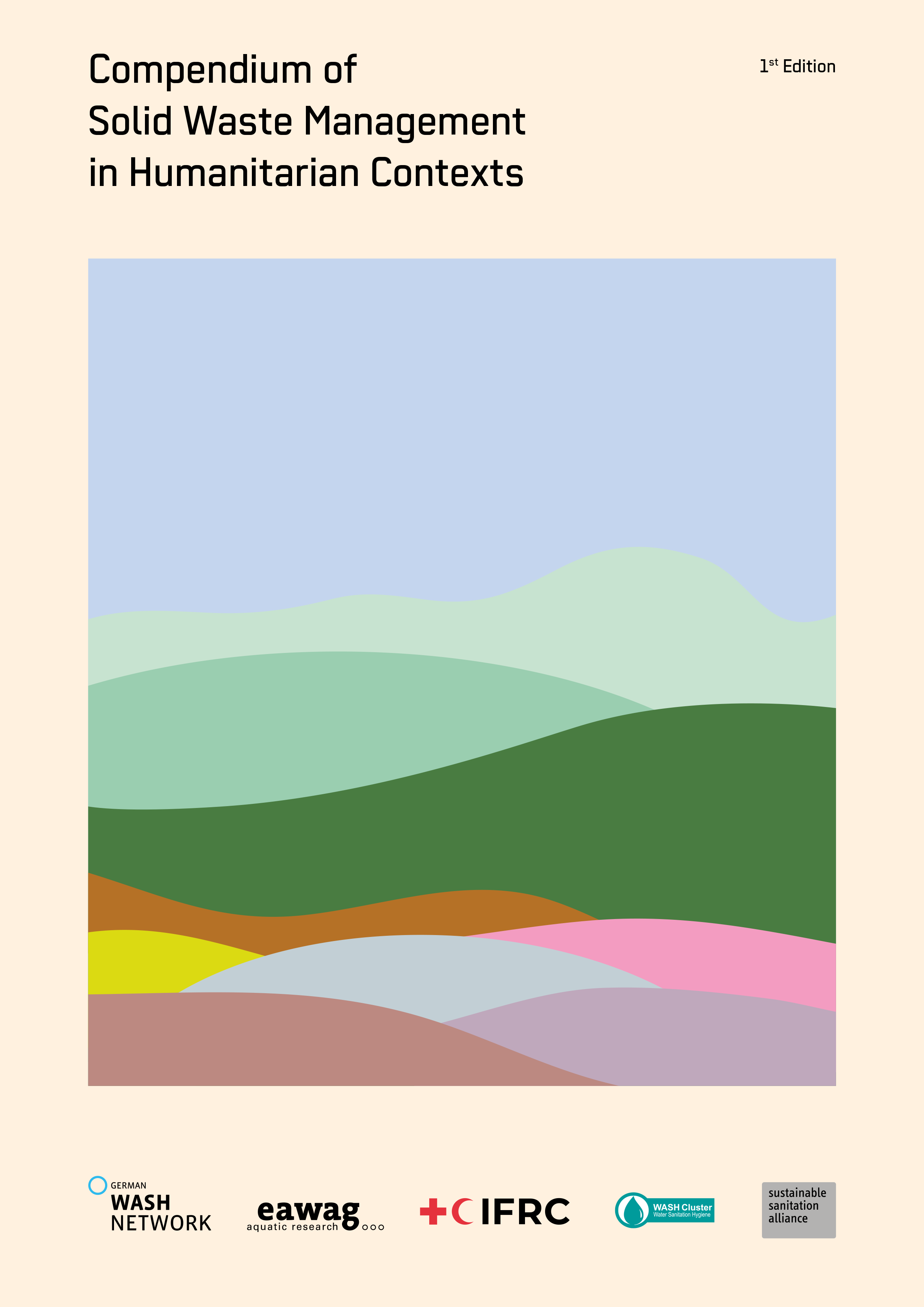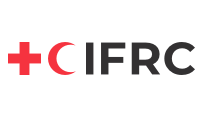Reliable Planning of Solid Waste Management in Humanitarian Contexts
The Compendium of Solid Waste Management (SWM) in Humanitarian Contexts is a comprehensive compilation of the most relevant and sector-reviewed SWM technologies, planning aspects and cross-cutting issues. It disaggregates SWM into its functional components, clarifies terminology and provides guidance on identifying the most appropriate solutions in a given context. The main focus is on the management of domestic and municipal solid waste in humanitarian contexts, including non-hazardous commercial and institutional waste. It is primarily a capacity strengthening tool that provides a systematic starting point to access relevant summarised information and supports SWM planning, implementation and decision making.

Decision Support Tool
The Compendium is primarily a capacity strengthening tool and resource that supports planning, implementation and decision making for specific SWM interventions. It provides a systematic starting point to access relevant summarised information on SWM with details and links to additional practical guidance as well as publications, case studies, videos and training materials where available. It facilitates informed decision making by providing the necessary framework to ensure that key SWM aspects are considered and helps to identify tools and frameworks appropriate for a given context.
Real-Time Configuration and Sharing
The Compendium allows for a targeted and context-specific filtering of SWM technologies and the real time configuration of entire SWM service solutions. All individual configurations made when using the available filter options and the configurator tool can be easily shared with interested colleagues. Relevant technology information and cross-cutting issues can also be pre-selected and shared.
From Relief to Development
Although humanitarian WASH interventions primarily focus on immediate life-saving measures and protecting public health, the humanitarian community increasingly faces longer-term protracted crises that stretch beyond an emergency response. Awareness has also increased about the necessity of initiating adequate SWM at the early stages of emergencies and throughout stabilisation and recovery to protect public health, the environment, and, indirectly, the life, well-being and prosperity of affected communities. The Compendium addresses this reality and contributes to the Humanitarian-Development-Peace Nexus by covering the technologies, approaches and planning elements that can be adapted for use in a variety of scenarios and response phases.
Target Audience
The main target audience is practitioners involved in humanitarian WASH response. They include technical and management staff from governmental, local, national, international and multilateral organisations deployed during emergencies and subsequent stabilisation and recovery activities. The audience also includes academic institutions and capacity strengthening agencies, the private sector, donors and actors from other sectors and humanitarian clusters that intersect with SWM, such as Health, Shelter, Logistics or Camp Coordination and Camp Management (CCCM).
Open-Source Tool
All provided information and graphics are open-source and free of charge. Permission is granted for sharing and reproduction, in whole or part, for education, scientific, humanitarian or development related purposes except those involving commercial sale, and provided that full citation of the source is made.
Collaboration
The Compendium is a collaborative effort of Global WASH Cluster partners, the German WASH Network, Eawag, IFRC and SuSanA with contributions from a wide range of international sector experts and organisations. It will be constantly updated and users are encouraged to provide direct feedback in order to ensure the quality and to further improve the platform.
chevron_leftchevron_right
Solid waste remains one of the most under-addressed challenges in emergency re- sponse, despite its direct impact on public health, environmental safety, and community dignity. This Compendium brings forward practical, peer-reviewed solutions that respond to operational challenges across diverse humanitarian contexts. Importantly, it empowers National Coordination Platforms (NCPs) by providing accessible, standardized tools that support national leadership, harmonized response planning, and cross-sector collabora- tion. As the WASH sector navigates increasingly complex emergencies, tools like this will be essential for strengthening preparedness, promoting local ownership, and ensuring a more resilient, inclusive, and accountable humanitarian response.
Monica Ramos Global WASH Cluster Coordinator, UNICEF
Effective management of solid waste during emergencies is crucial to protecting public health, the environment, and human dignity. Our IFRC network aims to make waste man- agement a core part of Water, Sanitation, and Hygiene (WASH) responses. The Compendium highlights proven tools and methods for managing solid waste, showing how it can improve health, enhance accountability, and empower communities to find their own solutions. By engaging with local communities and listening to their needs, Red Cross and Red Crescent societies work with other humanitarian organizations to create cleaner, healthier, and more resilient environments before, during, and after crises.
Jagan Chapagain Secretary General, International Federation of Red Cross and Red Crescent Societies
What do you mean, waste? If managed properly, it is public health, valuable resources, food security, agricultural productivity, energy and a livable future for all. Who would be fool enough to neglect all that and call it waste?
Marc-André Bünzli Thematic Advisor/Head Expert Group WASH, Swiss Agency for Development and Cooperation
WASH is a crucial part of humanitarian assistance, including Solid Waste Management (SWM), as it helps to prevent the spread of infectious diseases. Access to water and sanitation is a human right that must be achievable for all people. WASH therefore continues to be one of the priorities of German humanitarian assistance. SWM in particular is vital for managing the health of our environment, and poses particularly complex challenges in humanitarian contexts, especially in emergency and crisis situations such as Gaza, where the ongoing conflict has led to a complete collapse of conventional services such as collection, treatment, and disposal of waste. In 2024 Germany supported a UNDP project in Gaza with 5 Mio. Euros, which included the purchase of forklift trucks, as well other measures for waste disposal management. The publication of the fourth compendium on “Solid Waste Management in Humanitarian Contexts”, recognizes the growing need for action in this and streamlines information and insights on SWM and SWM technologies







